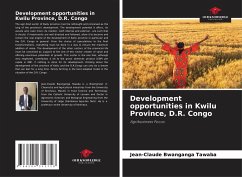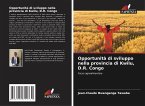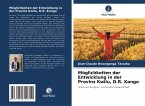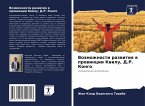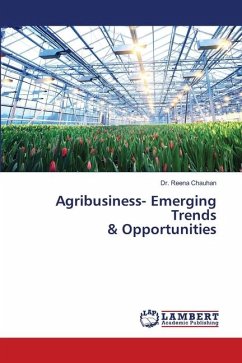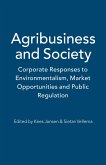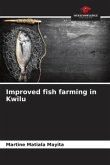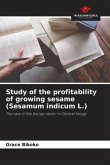The agri-food sector of Kwilu province must be rethought and conceived as the lung of the province's development. The development potential it offers, its assets and, even more, its market - both internal and external - are such that it should, if investments are well directed and followed, allow it to become and remain the real engine of the development of Kwilu province in particular and the D.R. Congo in general. From the choice of speculations to the final transformations, everything must be done in a way to ensure the maximum addition of value. The development of the other sectors of the provincial life must be conceived as support to the one of this sector creator of value and offering enormous potentials of growth. This sector is the one that, although very neglected, contributes a lot to the gross domestic product (GDP) per capita in DRC. If nothing is done for its development, thinking about the development of the province of Kwilu and the D.R.Congo can only be a dream that can last for a long time. Family farming is the best adapted model in the situation of the D.R. Congo.

